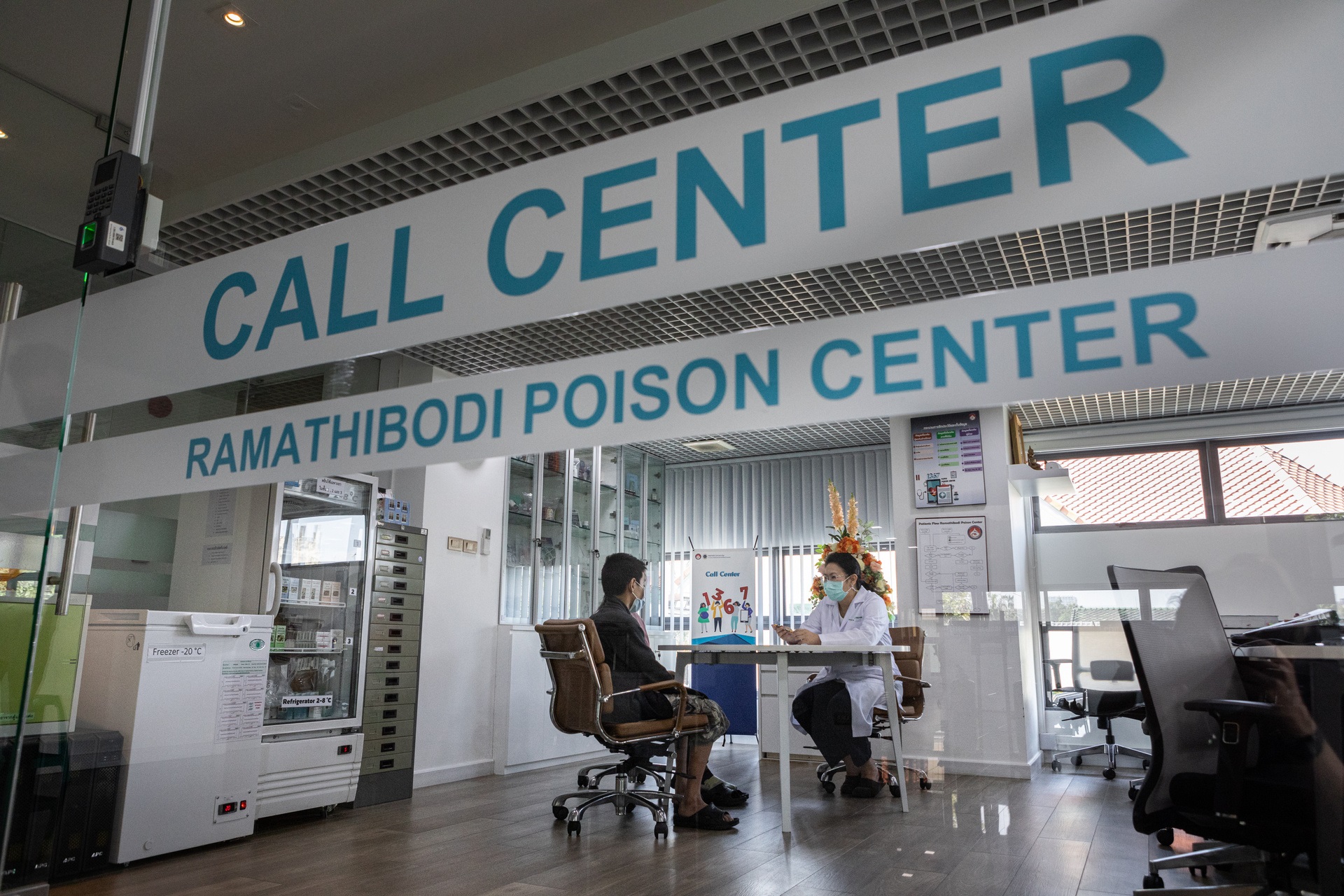
INTOX Network of Poisons Centres
The IPCS INTOX Programme
The IPCS INTOX Programme is a global endeavour to promote chemical safety through the establishment and strengthening of poisons centres. The Programme’s objectives are achieved through international cooperative and collaborative efforts coordinated by IPCS. These efforts have been particularly directed at the following activities:
- Development of defined terminologies and classifications to promote harmonized collection of data on poisonings.
- Development of training materials (see under Publications below INTOX Poisons Centre Training Manuals).
- Maintenance of a network for sharing information and for mutual assistance on poisons centre and toxicological issues (INTOX Network).
- Workshops on the establishment of poisons centres.
Who participates in the IPCS INTOX Programme?
Specialists from over 75 countries collaborate with IPCS in the INTOX Programme. These specialists work in poisons centres, clinical treatment units and analytical toxicology laboratories. They contribute to the Programme in a number of different ways, e.g.:
- by writing and peer-reviewing documents on the prevention, diagnosis and management of poisoning;
- by assisting with training;
- by providing support to newly established poisons centres; and
- by making available their expertise and knowledge to help with toxicological problems.
INTOX Network
The poisons centre and clinical toxicology world is rather a small one, yet within it resides a great deal of knowledge and experience on the diagnosis and management of poisoning, and on poisons centre operations. IPCS established the INTOX Network to provide a means to tap into this knowledge and experience for the shared benefit of all.
The INTOX network links together more than 200 specialists in over 75 countries. Members work in poisons centres, clinical treatment units, analytical toxicology laboratories and chemical incident response services. The network also includes members who are trying to establish a poisons centre in their own country.
Many members are also members of other poisons centre and toxicology networks and therefore the potential extent of the INTOX network is truly global.
Members of the INTOX Network communicate through a closed e-mail discussion group called INTOX-General.
To promote communication within the poisons centre community, IPCS maintains a world directory of poison centres. This is based on a directory called YellowTox, compiled by the World Federation of Associations of Poisons Centres and Clinical Toxicology Centres, in collaboration with the European Association of Poisons Centres and Clinical Toxicologists, and published by the Centre Anti-Poisons de Belgique.

Dr Satariya Trakulsrichai consults with patients at the Ramathibodi Poison Center.
History of the INTOX Programme
The seed for the IPCS INTOX Project, now Programme, was sown in October 1985 at a meeting between IPCS, the Commission of the European Communities (CEC) and the World Federation of Associations of Clinical Toxicology and Poison Control Centres
to consider the roles and functions of poisons centres.
Prior to the meeting a joint survey had revealed that only 11 developing countries had well-established poisons centres. Meeting participants recognized that there was much scope for international cooperation between poisons centres, and the development of mechanisms for the exchange of evaluated information, including case data, in comparable form was identified as a priority. A pilot activity was subsequently launched by IPCS to exchange information on chemicals and pharmaceuticals between poisons centres.
In 1986 IPCS became aware that the Canadian Government, through the International Development Research Centre of Canada (IDRC), was providing support in Sri Lanka and Egypt to establish poisons centres. The two organizations agreed that the development of a basic but standardized information package to assist in the establishment of poisons centres would be of significant benefit to developing countries. At a subsequent meeting in 1987 the following information needs for poisons centres were identified:
- Toxicological data on chemical substances, pharmaceuticals and natural toxins, to assist with diagnosis and treatment of exposures.
- Information on locally available products.
- Data on cases of poisoning that could be used for toxicovigilance and the improvement of patient management.
The IPCS INTOX Project was formally launched at a meeting in London, United Kingdom in March 1988. IDRC provided the initial funding for IPCS, in collaboration with the Canadian Centre for Occupational Health and Safety (CCOHS) and the Centre de Toxicologie du Québec (CTQ), to develop a multilingual (English, French and Spanish), interactive, computerized poisons information package. This package became the INTOX Databank and the INTOX Data Management System. Further funding was provided by several sources, notably the Norwegian Ministry of Foreign Affairs, and the United Kingdom Department of Health.
The INTOX Data Management System was used by poisons centres in Australia, Brazil, Chile, Ecuador, Ghana, India, Lithuania, Malaysia, Morocco, the Philippines, South Africa, Sri Lanka, Trinidad and Tobago and Uruguay. Unfortunately, a lack of funding to enable the re-development of the system so that it could continue to be used on the upgraded Windows operating system, has meant that the software became unavailable for future use in 2014. The data collection tools continue to be available, however.
Related links
INTOX tools for harmonized data collection
The collection of internationally harmonized data on poisoning cases provides a means to improve the knowledge-base on the toxic effects of chemicals through facilitating the comparison and pooling of case data collected by different centres.
IPCS has developed a multilingual, defined terminology (called authority lists) and classifications.
Publications
All →Guidelines for establishing a poison centre
This publication is an update of the Guidelines for poison control, published by WHO in 1997 under the auspices of the International Programme on Chemical...
This booklet presents a summarised synthesis of a project carried out to explore the feasibility of a subregional poisons centre in Eastern Africa. The...
Poisons centre training manual - trainee’s version
The INTOX Poisons Centre Training Manual is being developed by an international working group of experienced poisons centre staff. The aim of the manual...
Poisons centre training manual - trainer's version
The INTOX Poisons Centre Training Manual is being developed by an international working group of experienced poisons centre staff. The aim of the manual...
